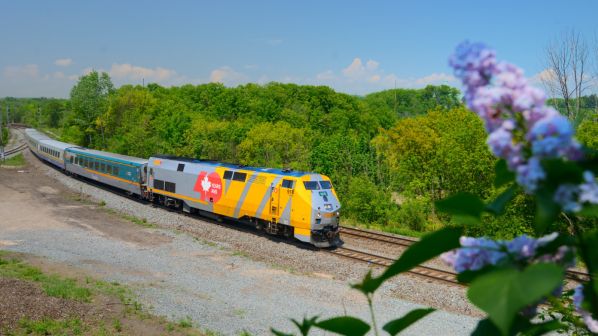Passenger traffic increased by 8% in 2018 to 4.74 million journeys, which is a 25% more than in 2014, while revenue rose by 7.4% to $C 392.6m ($US 291.9m) representing a 40% increase since 2014.
Passenger-km increased by 4% from 1.5 billion in 2017 to 1.6 billion last year and has risen by 22.8% since 2014. As a result, the government subsidy per passenger-km has fallen by 15% since 2014 to 16.6 cents. The subsidy per passenger-km on the Quebec - Montreal - Toronto - Windsor, which generates 96% of Via Rail’s journeys, has dropped by 22% over the same period to 10.3 cents.
Unfortunately, Via Rail’s operating expenses increased by 5.4% in 2018 to $C 665.2m resulting in an operating loss of $C 272.6m, although this is still less than the operating loss of $C 317.1m recorded in 2014.
New fleet
Capital expenditure was at a five-year high of $C 123.6m, compared with an average annual investment of $C 89.8m between 2014 and 2017. Via Rail awarded a $C 989m contract to Siemens in December 2018 for 32 trains to replace the existing fleet on the Quebec - Montreal - Toronto - Windsor corridor starting in 2022.
“While marking Via Rail’s 40th anniversary in 2018, we took enormous pride in our strong performance in terms of both revenue and ridership,” says Via Rail’s chair of the board, Ms Françoise Bertrand. “We were also delighted with the federal government’s decision to fund the replacement of our ageing fleet with a brand new set of trains in the Québec City - Windsor corridor.”

